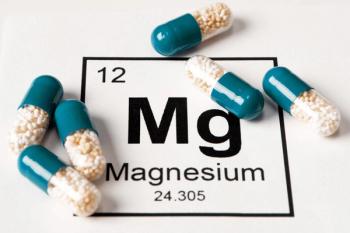
Cardiovascular
Latest News

A Silent Risk: The Critical Role of Awareness and Early Detection in Familial Hypercholesterolemia
Latest Videos

CME Content
More News

Ty J. Gluckman, MD, FACC, FAHA, of Providence St. Joseph Health, emphasizes the need for better prevention of cardiovascular risks and discusses upcoming advances in glucagon-like peptide 1 (GLP-1) therapies.

Twice-yearly inclisiran (Leqvio) monotherapy showed clinically meaningful and statistically significant LDL-C lowering in patients at low or moderate risk of atherosclerotic cardiovascular disease in the V-MONO study.

Medicare has not clearly defined what constitutes "established cardiovascular disease," leading to variability in potential patient eligibility; therefore, researchers aimed to estimate the number of Medicare beneficiaries who would become newly eligible for semaglutide under different definitions.

Patients with cardiometabolic diseases who follow an anti-inflammatory diet have better brain health and a lower risk of dementia.

Ochsner Health's Connected Maternity Online Monitoring (MOM) program has been recognized for its innovative approach in managing hypertension during pregnancy and postpartum.

A joint session with the Society for Cardiovascular Computed Tomography (SCCT) took place on the first day of the American Society for Preventive Cardiology 2024 Congress in Salt Lake City, Utah.

Martha Gulati, MD, MS, discusses the accomplishments of the American Society of Preventive Cardiology (ASPC) during her presidency and emphasizes the importance of advancing preventive cardiology.

In advance of this year’s American Society for Preventive Cardiology (ASPC) 2024 Congress on CVD Prevention, we spoke with ASPC President-Elect Michael Shapiro, DO, FASPC, about the many can't-miss sessions at this year's record-breaking event.

Applying PREVENT Equations May Reduce Statin and Antihypertensive Therapy for 15.8 Million US Adults
Researchers identify potential reductions in statin and antihypertensive therapy eligibility using Predicting Risk of cardiovascular disease EVENTs (PREVENT) equations.

Interventions promoting adherence to the Mediterranean diet were associated with cardiometabolic biomarkers in children and adolescents, according to one study.

Patients with atrial fibrillation who use wearable devices, like Apple Watches and FitBits, report higher anxiety levels and increased health care usage than nonusers.

No significant differences in efficacy or safety of 2 aspirin doses were found between male and female patients for the secondary prevention of atherosclerotic cardiovascular disease (ASCVD).

Patients with both diabetes and atherosclerotic cardiovascular disease (ASCVD) have about 1.5 times higher total direct health care expenditures than those without diabetes.

Glucagon-like peptide-1 (GLP-1) receptor agonists provide similar reductions in major adverse cardiovascular events, all-cause death, and cardiovascular-related death in patients with overweight and obesity who do not have diabetes and in patients with diabetes.

Researchers discovered a causal relationship between air pollutants and increased cardiovascular disease (CVD) risk, highlighting the need for protective measures to mitigate exposure.

The home-based care model offers a promising strategy for improving quality of care, while also reducing health care spending.

Extreme temperatures and hurricanes are strongly associated with worsening cardiovascular health, a study finds.

The low-calorie sweetener was associated with incident major adverse cardiovascular event risk, according to one study.

This study evaluated whether limited English proficiency modifies the association between cardiovascular risk factors or cardiovascular disease and outcomes in patients hospitalized with COVID-19.

Having a higher magnesium depletion score (MDS) independently predicts increased all-cause and cardiovascular mortality risks in US patients with hypertension (HTN), emphasizing the importance of early HTN prevention and magnesium deficiency management.

This week, the Center on Health Equity and Access covers news related to AI integration, disparities in pediatric hospitalizations, new advancements presented at the 2024 CMS Health Equity Conference, and an expert discussion on the cardiovascular field.

Ronesh Sinha, MD, attributes the rising rates of heart disease to sedentary lifestyles, stress, and health inequities, while advocating for digital health solutions to improve preventive care.

Using a microsimulation approach, this study modeled the potential multiyear health and economic benefits of participating in cardiometabolic virtual-first care programs.

In this episode of Managed Care Cast, Nihar Desai, MD, MPH, cardiologist and vice chief of Cardiology at the Yale School of Medicine, discusses therapies for cardiovascular conditions as they relate to patient adherence, polypharmacy, and health access.

Cardiovascular disease (CVD) risk was reduced by 1.2% in the intention-to-treat analysis and 5% in the per protocol analysis for adults aged 75 and older.



















